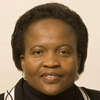Confused about the Eskom crisis? With rumours of further developments in the battle between the board and the CEO, Mail & Guardian tracks the events as they have unfolded thus far.
The series of lightening changes at the parastatal may have left you confused. Read on for a list of the main players involved in the leadership crisis at the electricity giant and a timeline of events.
The players

Jacob Maroga Jacob Maroga: An engineer with Eskom since 1995, Maroga moved quickly through the ranks to become a managing director in 2000. He was appointed chief executive officer in 2007 out of 270 candidates when then-CEO Thulani Gcabashe stepped down. A relationship breakdown with senior management and the board led to the present crisis. His resignation was announced on November 5 2009 but later denied. He is formally back at work this week. As CEO, he is answerable to the board but is responsible for the day-to-day running of the company.

Bobby Godsell
Bobby Godsell: Appointed as Eskom’s chairperson in 2008, succeeding politician-turned-businessman Valli Moosa. Godsell has a long history in mining and business, having previously served as CEO of Africa’s largest gold producer, AngloGold Ashanti, and president of the Chamber of Mines. He resigned on November 9 in frustration with the government’s actions, in a move that was seen as a victory for Maroga. He was accused of a racist agenda by the Black Management Forum (BMF) but both Congress of South African Trade Unions secretary general Zwelinzima Vavi and the National Union of Mineworkers spoke out in his defence in this regard, saying he is pro-transformation.

Board member: Uhuru Nene The Eskom board: Eskom has a unitary board structure with 13 non-executive directors and two executive directors, appointed by the minister of public enterprises. The board, which includes Maroga and Godsell, was unanimous in its decision to accept Maroga’s reportedly verbal resignation. It was accused of an anti-transformation agenda by the Black Management Forum, of which Maroga is a member. Four of the board are white.
There have been rumours of further board resignations to come after Godsell’s departure. If Maroga were to be suspended, the decision would have to come from the board, but the government — as the shareholder — has already not recognised their decision regarding Maroga’s resignation. The board is answerable to the shareholders, but should function independently and without prejudice, and in the best interests of the company and, ultimately the country. According to Eskom’s corporate governance structure, the board has the authority to lead, control, manage and conduct the business of Eskom — including the authority to delegate — and retains full control over operations.

Barbara Hogan Shareholder: Eskom is wholly owned by the government, which acts as the sole shareholder of Eskom, on behalf of the people of South Africa. Public Enterprises Minister Barbara Hogan acts as government’s representative and is directly responsible for Eskom. Hogan maintained there was no interference by President Jacob Zuma to save Maroga’s job, but he is understood to have met Godsell on November 8. Godsell tendered his resignation the next day. As sole shareholder, government is to act in the interests of the country and its people.
Timeline
- Thursday, October 22: Maroga prepares his strategy document to the board with his vision for the future of the parastatal and energy in South Africa. Godsell pens his own document, listing his 41 concerns, according to board documents leaked to the M&G on November 5.
- Wednesday, October 28: According to an M&G source, the board heard both Maroga and Godsell on their visions for Eskom’s future. When the board made it clear it preferred Godsell’s approach, Maroga offered to resign, as shortly afterwards did Godsell. Both men were asked to leave the meeting and the board elected to accept Maroga’s offer and to keep Godsell, said the source. Godsell confirmed this on November 9, saying that on October 28, Maroga offered his resignation, and the board accepted it. ”The board’s legal advice is that the resignation was quite clear in its intent, and the board was entitled to accept it,” Godsell said.
- Thursday, October 29: According to Godsell, Maroga denied he had resigned, and ”spurned” two offers to resolve the matter. The board offered to submit the dispute to private arbitration, but Maroga did not respond.
- Thursday, November 5: Godsell announces at a general staff meeting that Maroga has tendered his resignation. He is called into a meeting immediately afterwards, presumably with the government, and a press conference is cancelled.
- Friday, November 6: The BMF accuses Godsell and the board of an anti-tranformation motive and of forcing Maroga out because of race. ANC Youth League President Julius Malema maintains there is no resignation letter. Maroga is mum and there is a lock-down of information to the media.
- Sunday, November 8: Godsell reportedly meets with Zuma.
- Monday, November 9: Godsell resigns, saying that the government — as shareholder — did not uphold the board’s decision. According to Business Day, Eskom sources said that Maroga wrote a strongly worded letter on November 9 to Hogan in which he ”affirmed” his position as Eskom CEO and director. Hogan appoints longtime board member Mpho Makwana as acting chairperson.
- Tuesday, November 10: Maroga is back at work while the ANC and its alliance partners seem divided in their support. Cosatu comes out in support of Godsell, regretting his resignation. An announcement is expected from the Ministry of Public Enterprises.
- Wednesday, November 11: Bloomberg reports that Jacob Maroga will no longer continue as Eskom CEO. M&G sources confirm that Maroga is out and that senior staff were called into a meeting with members of the board. A scheduled Eskom press release clarifying the matter is postponed. Meanwhile an anonymous letter purportedly from senior Eskom managers is sent to the M&G pleading with Maroga to leave, and containing serious allegations.
- Thursday, November 12: The Eskom board calls a press conference where it is announced that Maroga’s verbal resignation was recorded and accepted by the board, with the government’s support. Makwana will act as de facto interim executive chair — a chairperson with executive authority – while they board searches for a new CEO, hopefully to be appointed within 90 days.